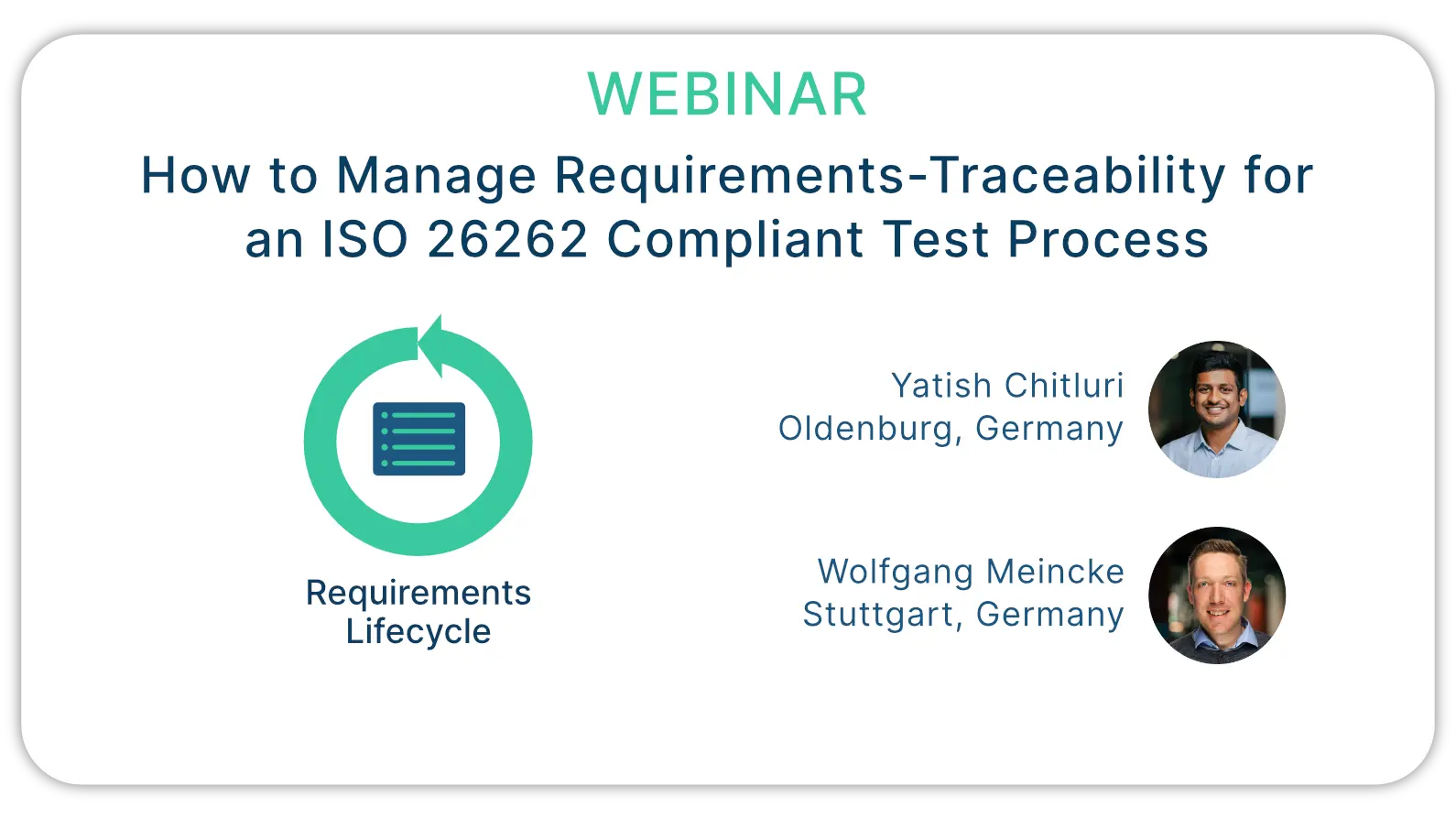
June 18th, 10:00 CET (Berlin) / 04:00 EST (Detroit) / 13:30 IST (Bangalore) / 16:00 CST (Beijing)
June 18th, 15:00 CET (Berlin) / 09:00 EST (Detroit) / 18:30 IST (Bangalore) / 21:00 CST (Beijing)
Developing safety critical systems in the automotive domain to standards (like ISO 26262) requires managing traceability between different types of artifacts in the development process. This traceability is particularly important when it comes to requirements and test cases, to ensure the following questions can be answered with confidence and accuracy at any project stage:
1. Did we create test cases for every requirement?
2. Which requirement(s) is/are covered by a particular test case?
3. Are there requirements which are not correctly implemented by the software?
Exchange formats like Excel or ReqIF can be used to connect the tools, but they become increasingly inefficient and error prone, especially as the software development process becomes more agile. The introduction of manual data import/export steps could compromise the consistency of the data.
In this free Webinar, we will show you how to ensure an efficient connection and bi-directional traceability between your test tools and ALM/PLM solutions within a Model-based development process. While the presented strategy is generic, we will focus our live demo on a toolchain which consists of IBM DOORS NG, IBM Engineering Test Management, Simulink, dSPACE TargetLink and BTC EmbeddedTester.


